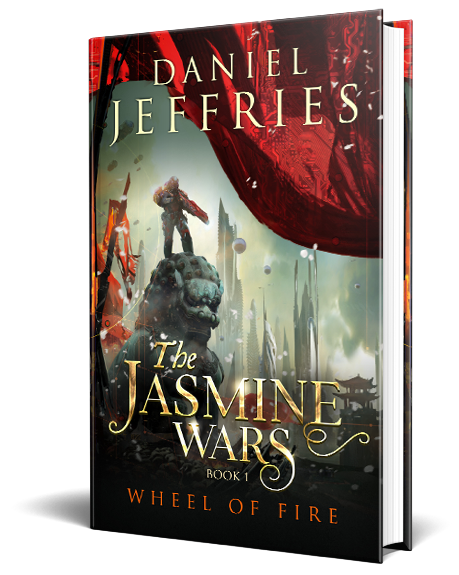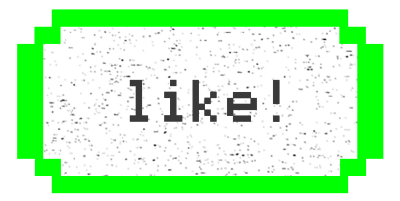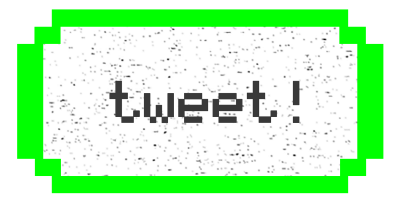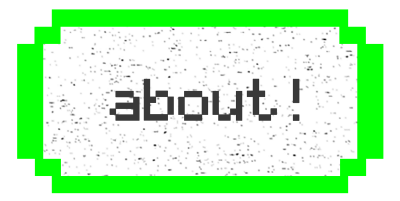Tim Berners-Lee wants to take back the web.
Late last year he huddled with a cabal of internet luminaries in a bid to restore the decentralized heart of the internet.
Instead we’re racing in the opposite direction.
China has turned internet censorship into an art form. We’re rushing headlong towards a public cloud model where three or four companies run every server on the internet. The moronic new head of the FCC wants to rip up net neutrality, handing gleeful media titans and internet service providers the ability to strangle competitors.
We’re not getting less centralization we’re getting more.
That’s why we designed the open source Cicada system, a completely decentralized application platform that delivers on the web’s original vision.
Think of it as Lambda without AWS.
The Cicada platform was inspired by research for my epic Chinese civil war saga, The Jasmine Wars, where China rises up and hurls off the chains of communism, becoming the world’s first direct democracy, running a highly advanced distributed voting platform that nobody can subvert or control. As I designed the rules for that system to power the plot of my story, I started to wonder:
Could we build something like that today?
Turns out, we can.
But we have some work to do.
When I started, I imagined that the system might use blockchain technology and fork Bitcoin or Ethereum code. But very quickly I realized that Bitcoin and other cryptocurrencies had several fatal flaws.
Their biggest flaw is that they’re currencies first and platforms second.
That’s why they haven’t caught on beyond the tech community.
Cicada flips that concept on its head. It’s a platform first then a currency.
Why is that important?
Because today’s decentralized app platforms have a built in catch-22. To get on the system you need their proprietary money. In the real world you can form a group, vote or read a web page for free but with Ethereum or Bitcoin based apps you need cold hard cash to do the simplest things. Everything on those systems costs money. Run out of money and you’re stuck until you get more. Want to vote in your local knitting club? Too bad. Better get more funny money. It’s all pay to play.
Some things should just be free.
And yet these systems have absolutely no way to make that happen because they’re app platforms as an afterthought.
That’s why Cicada’s architecture introduces “action tokens” generated dynamically based on use. Action tokens let you do stuff on the network for nothing. They’re automatically processed by miners so people can get things done. Want to form a local comic book club and vote on things? That’s free.
If it’s free in real life, it’s free on Cicada.
Instead of getting a wallet, trading cash for funny money and then trying to figure out what you can do with it, imagine this:
Joe User goes to an app store, downloads the Cicada mobile app and starts doing things right away. He form groups with his buddies, votes, chat with friends, all for free. The he realizes he has a built-in wallet with some coins in it and thinks “I wonder what I can do with these?” He realizes there’s a whole hidden level to the platform, one where he can buy and sell things too. Awesome!
We released the original blueprint for the system late last year. Today we’re releasing a followup paper (still in beta so please forgive us a few typos) that better explains several key features:
A fully decentralized ID system
A robust, automatic reputation system for all aspects of the system
Without a doubt, the ID system got the most scrutiny and the most doubt in the first paper. A common refrain was that it’s impossible to build a strong, privacy enhancing, decentralized ID system with no governing central authority. People feared it would be trackable or gameable, making it easy to spin up alternative identities and attack the system.
We realized that the problem was that we’d failed to outline exactly how the reputation system would prevent those attacks because of a disconnect between how people imagined a reputation system (as a big version of Yelp ratings) versus how we’d designed it.
And don’t worry, it’s not a Black Mirror style system either, where people get points for smiling and everyone is rating everyone else on their hair to their fashion sense.
Instead, the Cicada Reputation Bank is a powerful, algorithmic system of trust that works at all levels of the system from the top to the bottom automatically. It protects and defends the system, prevents fraud and allows for special features like a built in Universal Basic Income described in my first article on Cicada or a decentralized Tor with the potential for billions of exit nodes outlined in my second article.
But why a decentralized ID? Why not just create a trusted central authority and issue the IDs?
The reason is simple: Trust is a moving concept.
If a man is faithful to his wife for fifteen years and then cheats on her, all his trust burns up overnight.
And yet we design our systems as if trust is eternal. We assume that if a company, or an institution is filled with good people now that it will stay that way forever.
That blind faith has terrible consequences.
A company, an organization or even a country can go bad quickly. Only a system that can survive that failure of trust will work in the future. When companies betray our trust today, tapping our lines, mining our information and selling it to the highest bidder and in general abusing our goodwill there’s nothing we can do about it.
But Cicada holds the potential to return trust permanently to the users of the system.
A decentralized ID protects against organizations gone bad.
We need the system now more than ever.
Ultranationalism is on the march all over the world.
No country is safe.
Populists from the Philippines to France to the Netherlands are threatening to crush compromise and rule of law with an iron fist.
In other words they’re about to turn previously trusted countries into untrusted ones. Any system they control will be subverted and trust destroyed.
We need to build a system that “locks in open” as Tim Berners-Lee puts it.
And we need to do it before it’s too late.
We still have time. But the doors are closing fast. If we’re not careful we may wake up one day and find out the doors have slammed shut for good.
As always it’s up to the people to save ourselves. You can be a part of it.
We’re still looking for a few good coders and more alpha testers and you can sign up here.
And we aren’t doing it alone anymore. Today, we’re also announcing our partnership with the Fermat Project, aka The Internet of People (IoP).
Check out this story in Forbes that details the vision for the Internet of People system in depth.
Send an email to web [AT] fermat.org to get an invite to their Slack channel if you want to participate with coding, alpha testing and more!
When we started the Cicada project we didn’t think anyone else in the world shared our vision.
But we were wrong.
Fermat is two years into coding, backed by angel investors, have more than sixty contributors hammering away on the back end pieces of the open source project and they’re making progress faster than anyone in the world.
They’re not just talking, they’re doing.
I’ve had a chance to meet with the team and was invited to join them in Switzerland for their developer summit.
Just like Tim Berners Lee, the Cicada project and Fermat’s founder, Luis Fernando Molina, watched as the internet went from an open playground to a nightmare of trolls, constant battles between far left and far right, propaganda and centralized choke points. We need a new vision that delivers on the original promise of the internet as an open, highly resilient and powerful network of people.
That’s why Fermat and Cicada are working together to move that vision forward faster. We both see a future connected by decentralized peer to peer applications that no one nation or company can strangle.
Decentralization is our only hope.
Help us code the future. Join the Cicada projects.
And you just might save the world.
############################################
If you love my work please do me the honor of visiting my Patreon page because that’s how we change the future together. Help me disconnect from the Matrix and I’ll repay your generosity a hundred fold by focusing all my time and energy on writing, research and delivering amazing content for you and world.
###########################################
If you enjoyed this article, I’d love it if you could clap it up to recommend it to others. After that please feel free email the article off to a friend! Thanks much.
###########################################
A bit about me: I’m an author, engineer and serial entrepreneur. During the last two decades, I’ve covered a broad range of tech from Linux to virtualization and containers.
You can check out my latest novel, an epic Chinese sci-fi civil war saga where China throws off the chains of communism and becomes the world’s first direct democracy, running a highly advanced, artificially intelligent decentralized app platform with no leaders.
You can get a FREE copy of my first novel, The Scorpion Game, when you join my Readers Group. Readers have called it “the first serious competition to Neuromancer” and“Detective noir meets Johnny Mnemonic.”
You can also check out the Cicada open source project based on ideas from the book that outlines how to make that tech a reality right now and you can get in on the alpha.
Lastly, you can join my private Facebook group, the Nanopunk Posthuman Assassins, where we discuss all things tech, sci-fi, fantasy and more.
############################################
Thanks for reading!
Hacker Noon is how hackers start their afternoons. We’re a part of the @AMI family. We are now accepting submissions and happy to discuss advertising & sponsorship opportunities.
If you enjoyed this story, we recommend reading our latest tech stories and trending tech stories. Until next time, don’t take the realities of the world for granted!







